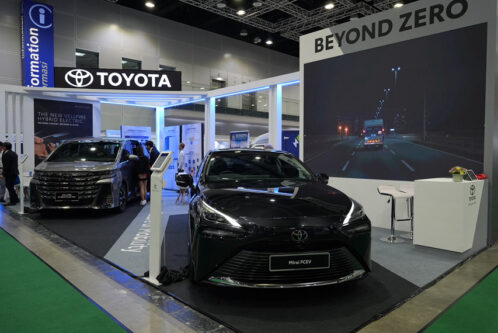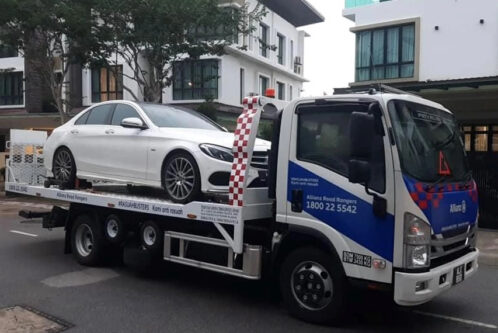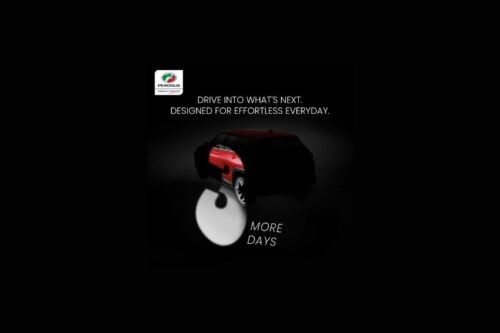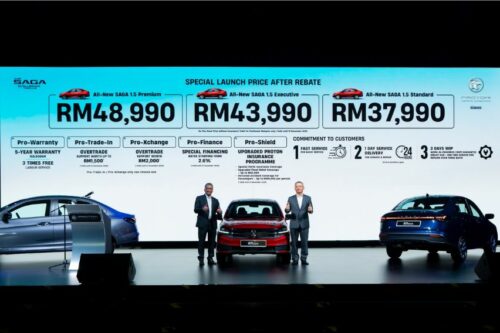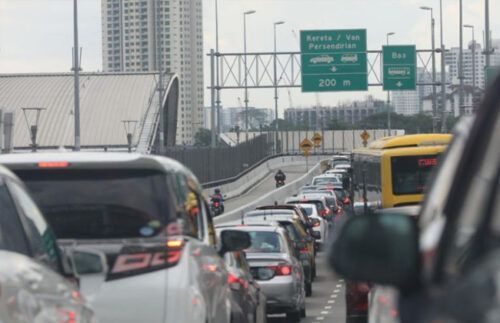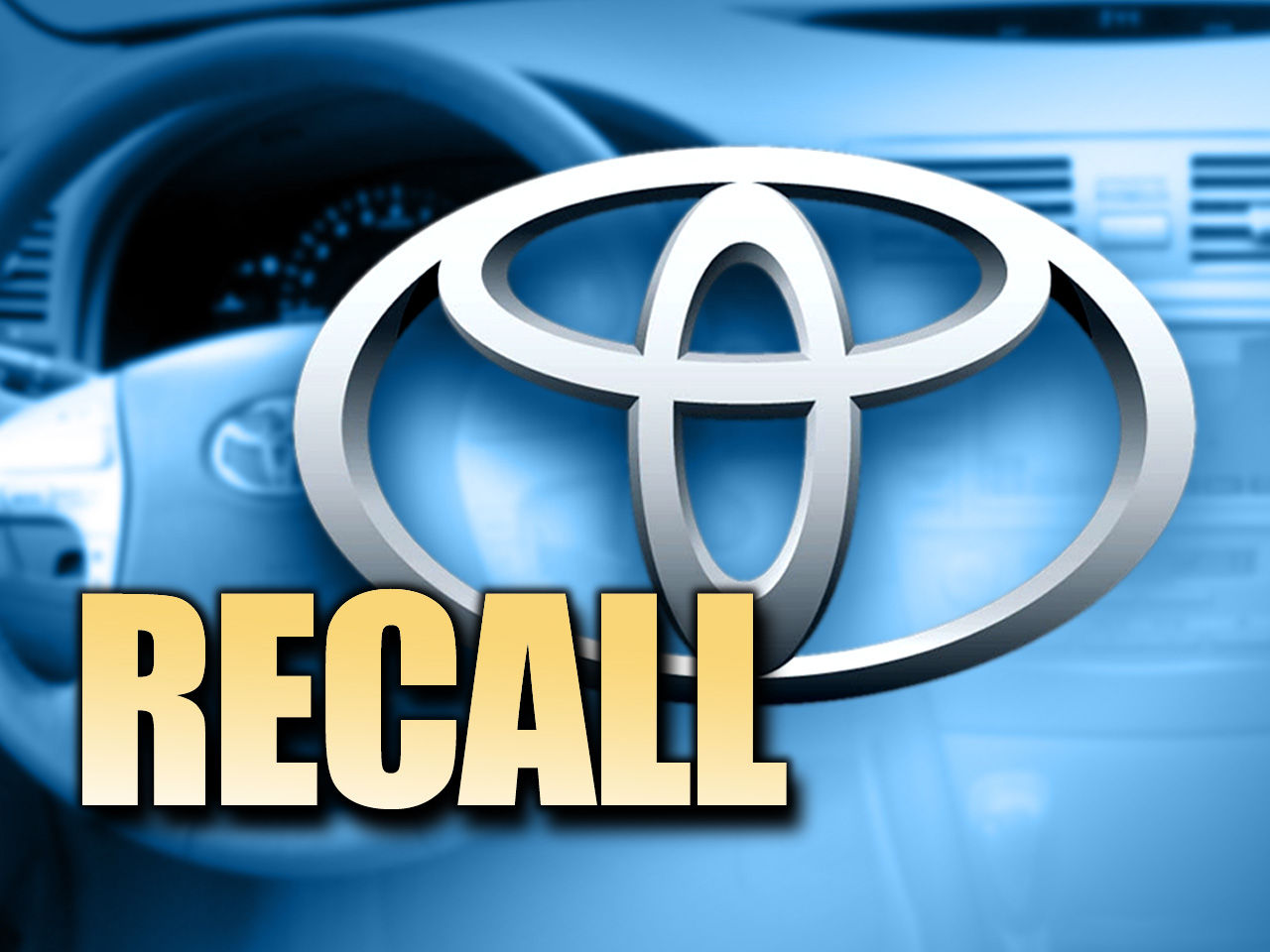Car dashboard warning lights: Know them before its late
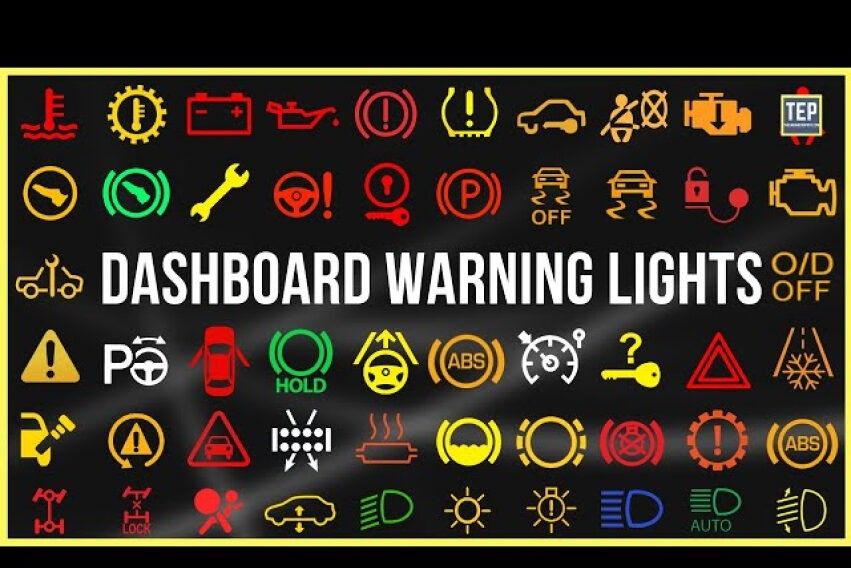
One of the most important and interactive parts of a car is its dashboard. This boat runs across the windshield and is also known as the car’s fascia or the instrument panel. It is fitted with several gears including the infotainment system, digital instrument panel, and whatnot.
KEY TAKEAWAYS
Why must dashboard warnings not be ignored?
Ignorance of warning lights might lead to unwanted expenditure, and destroy your engine and several important car parts.Over time the car's dashboard has considerably evolved in all senses be it shape, design, and features. Compared to the yesteryear dashboards that showed the car’s speed, oil pressure, and level of fuel; the modern-day units include an array of gauges, entertainment systems, and climate control, among others. Some modern-day dashboards even showcase up
to three screens making it seem like it's coming out of a sci-fi movie.
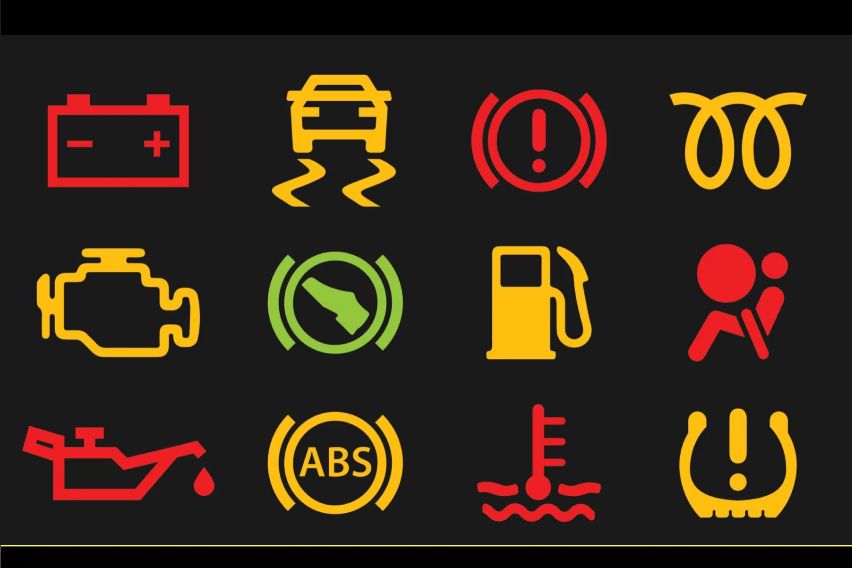
Dashboard warning lights
Apart from providing the driver with necessary information and entertainment, the dashboard screen also sometimes shows warning signs. These signs indicate to the driver a potential issue arising in the machinery which should not be ignored and solved immediately instead.
Let us now check out different warning lights seen on the dashboard -
Engine Temperature Warning Light
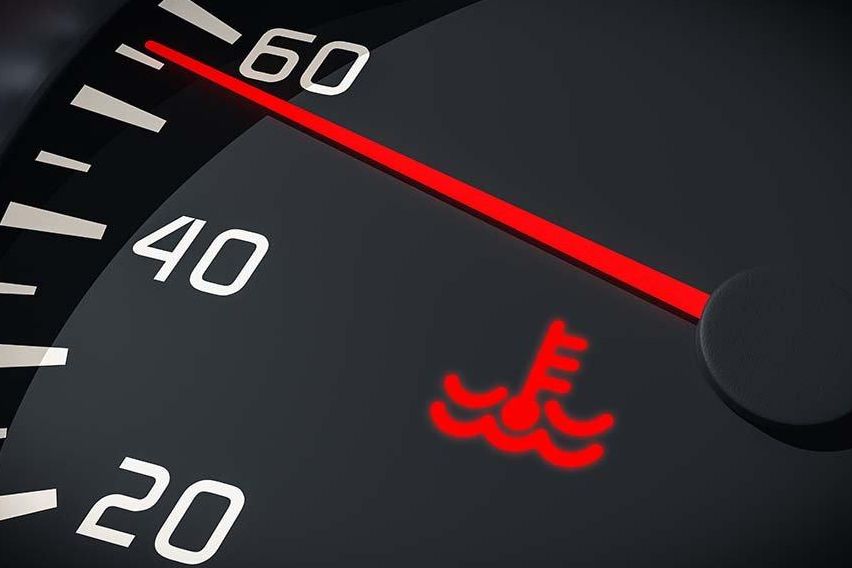
Pattern: This warning light is red in color and has a theremotor in the middle with some waves at the bottom
Cause: This light indicates overheating of the engine which simply means that the car has been used for a longer time than it should be at a single stretch. Apart from this, the engine temperature warning light also lights up when there is a lack of cooling water or the system is faulty altogether.
Also, there can be a few other reasons for the light to go on including
- Due to the presence of a foreign object
- A broken thermostat
- Mineral deposits that might blow the liquid flow
- Excessive heat build-up
- A small leak in the system causes air to come in and form a bubble
What to do: As and when the engine temp light turns on the driver should pull over the car on the side of the road. Next, he/she should open the bonnet and let the unit cool down. It is advised not to open the radiator while the mill is still hot.
Once the engine cools down, one must open the radiator cap and check the coolant level. However, it all should be done in caution with the help of a cloth that will help release the air pressure.
In case the coolant level is below the mark, add it to the radiator. While doing so, also check for water leakage.
If nothing works, it is highly recommended to take the car to the nearest service center and get it checked.
Damage, if ignored:
- Engine will knock down, thus causing damage to the piston, ring and head gasket
- Excessive heat might cause internal parts to expand , thus leading to metal-to-metal occurrence
- Cracking or warping due to thermal stress
Engine Oil Pressure Warning Light
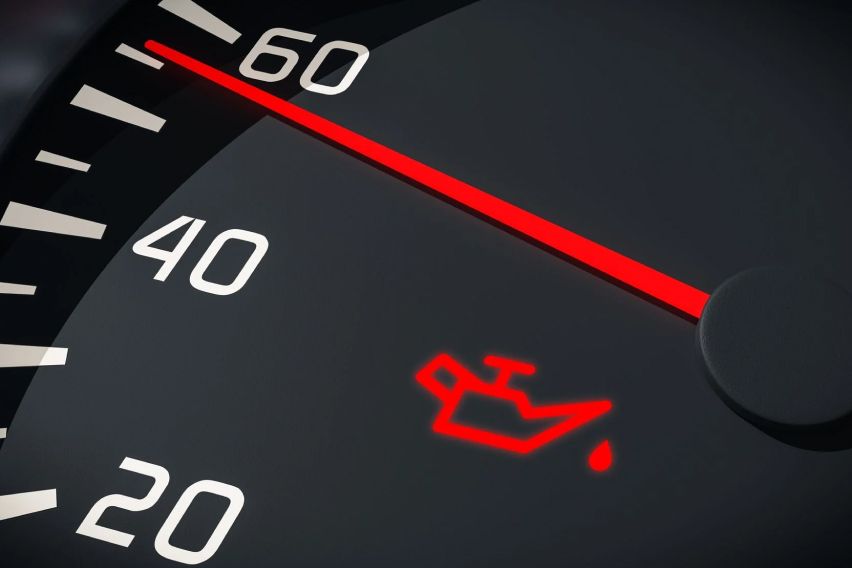
Pattern: This one shows an oil lamp on the screen.
Cause: This one indicates the presence of insufficient oil in the engine. The problem may arise due to the consumption of oil at a higher rate because of evaporation or oil leakage through oil plugs or seals.
Other reasons that might cause the enlightening of the engine oil pressure warning light include -
- Due to a defective sensing unit (even with a perfectly running engine and correct oil levels)
- Clogged up filter leading to improper operation of the bypass valve and causing lubrication starvation
- The oil pump isn’t pumping enough fluids which help lubricate inside surfaces
What to do: As and when the Engine Oil Pressure Warning Light shows up, the first step should be to check the oil levels. Also, it is a basic car care tip to keep the oil levels under check at all times.
In case the oil levels are low, the first step should be to refill. An oil change in a car is considered a spring-cleaning activity.
Though all cars are different so are the climate, mileage, and driving frequency; however by general parameters, it is advised to change oil every 3000 to 5000 miles and synthetic oil every 5,000 to 7,000 miles.
Damage, if ignored: Note, that an owner shall never delay an oil change schedule as it causes junk to build up which might damage the engine.
Battery Charging Warning Light
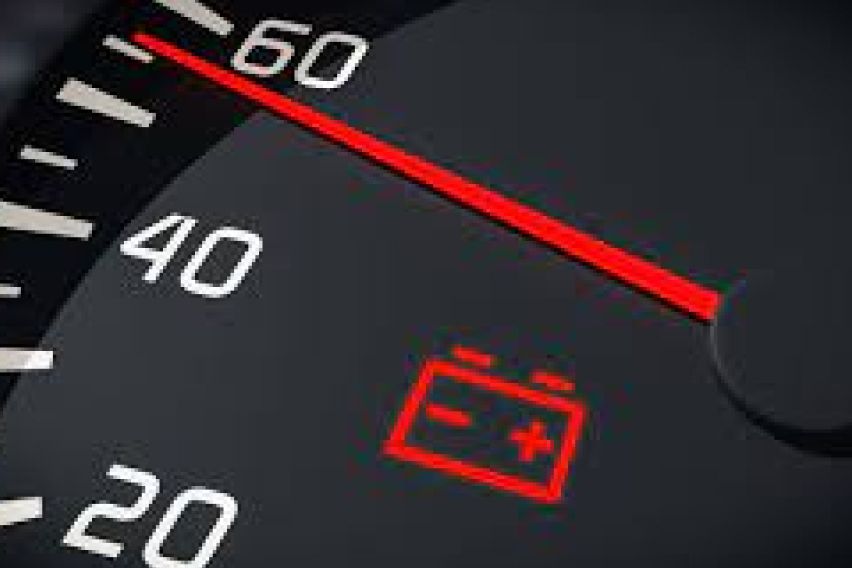
Pattern: The battery charging warning light symbol looks like a math Lego with a minus and a plus sign.
Cause: When this symbol comes up on your dashboard it is an indication that there is something wrong with the battery; it's charging to be specific. The most common cause of this is a broken alternator belt.
Other reasons that might lead to battery charging problems include -
- Corrosion of the battery posts or terminal leads to interruption of electricity which prevents the alternator from doing its job
- Loose battery cable leading to improper charging
- A bad or faulty alternator may also cause the Battery Warning
- Light to lit up as an alternator is responsible for keeping the battery fully charged
- Excessive use of accessories in the car as they quickly drain out the battery
What to do: The only thing that an owner needs to do is take the car to the nearest service center and get the battery system checked.
Damage, if ignored: Cars these days feature rechargeable 12-volt batteries which are responsible for several functions like headlight, ignition, radio, and so on. Therefore, an owner must get the battery charged once the light gets lit up.
Also, a car’s functioning majorly depends on the battery and when it goes down other warning lights might show up.
Tyre Pressure Warning Light

Pattern: The Tyre Pressure Warning Light icon includes an exclamation mark placed inside a type-like structure.
Cause: The tyre pressure warning light goes up on the dashboard when the tyre pressure is too low; which in turn creates unsafe driving conditions. Another reason for this light to glow up is over-inflation.
Damage, if ignored: If the driver ignores this sign and continues to drive the car with under-inflated tires, it might lead to undue tire wear of the tyre. This will lead to tyre failure.
The same is the case with the over-inflation of tyre.
What to do: Whenever you see the tyre pressure warning light on the dashboard, it is advised to check the tyre pressure via a tyre pressure gauge. Experts also recommend a periodic check every month to prevent the tires from wearing out too soon.
Check Engine Warning Light
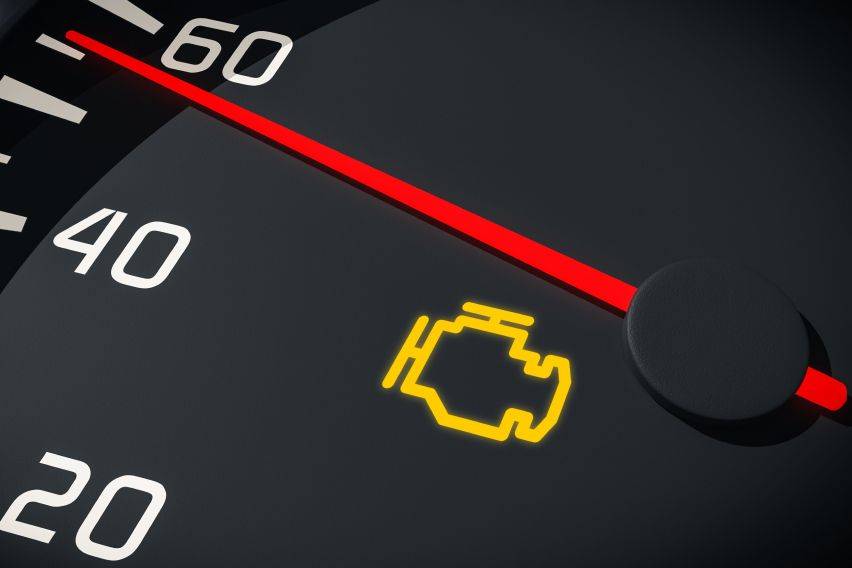
Pattern: This one is quite easy to remember as it includes an engine symbol and the word ‘CHECK’ under it.
Cause: When a system part is not working properly it leads to the turning up of the check engine warning light. It might be due to the following reasons
Emission system fault; cars today are designed with systems that control exhaust emissions. Sometimes there is too little or more oxygen passing through which leads the light to go on
Incorrectly installed mass airflow sensor; the unit is vital for efficient engine performance. If not properly installed it will lead to the entry of harmful particles into the engine air passage. Leading to a
- Damaged sensor
- Ignition system fault
- Loose diesel or petrol filler cap
- Blocked diesel particulate filter
What to do: The first thing to do when the check engine warning shows up is to find out why it happened. It could be any one of the above-mentioned reasons.
In addition, the driver should check for other dashboard lights and gauges for overheating and oil pressure. Other things a driver should do include
- Reducing vehicle speed
- Tighten up the gas cap
- Take the car to the service center
Service Engine Soon Warning Light
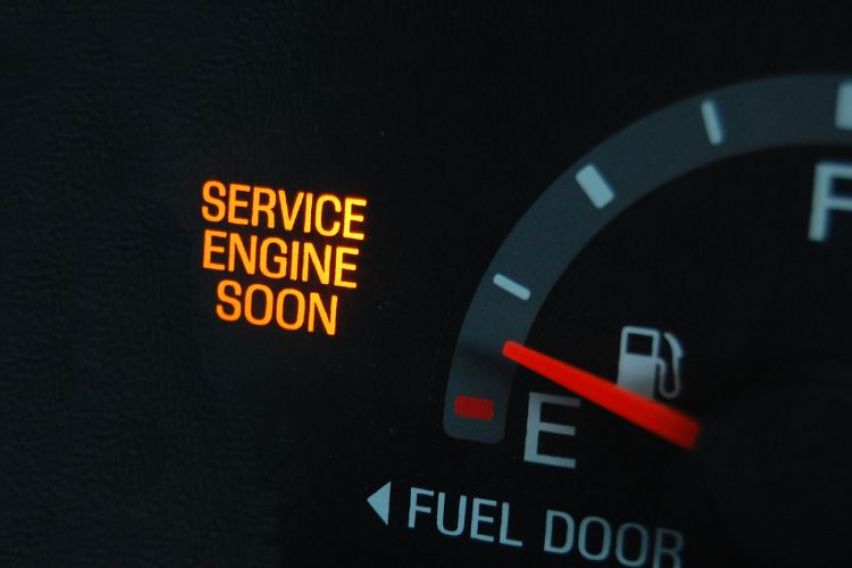
Pattern: This one is direct with the icon reading ‘SERVICE ENGINE SOON’ on the instrument panel.
Cause: Depending on the model, the Service Engine Soon warning light can have different meaning. In most cases, it simply indicates minor issues with the engine, while in others it prompts car servicing time.
What to do: The first thing a driver should do when the Service Engine Soon Warning Light lits on to check all the fluids including oil level, transmission fluid level, brake fluid level, washer level, and others.
In addition, one must check all the car lights and see if they are working properly. Also, check the car’s service records, if it is due, take the car for routine maintenance. However, if the car was recently serviced, it indicates a minor issue that should be taken care of and can be done via a professional.
ABS (Anti-Lock Braking System) Warning Light

Pattern: Words ABS will appear on the dashboard in bold yellow upper case.
Cause: The ABS Warning Light indicates a faulty anti-lock system meaning the brakes would work fine but an emergency stop would not be possible. Some of the extremely common reasons for the ABS light to go on include low fluid, faulty control unit, failed pump, solenoid malfunction, standard bulb check, and bad speed sensor.
What to do: One should know that the ABS system maintains contact between the vehicle and the road and allows the driver to make an emergency stop without any delay.
However, it should be noted that every time the engine is turned on the ABS warning light briefly lits up, and only if the internal system finds a problem the light stays on.
What to do: First and foremost try and detect the reason for the ABS warning light to go up, followed by appropriate rectification measures.
Warning sign: If in any case, the ABS and brake system lights are turned on at the same time, it is an indication that the car is not safe to drive.
Also, if the Blue Check is not working fine, i.e., all the warning lights are not turning on and off each time the ignition is turned on and off respectively. The owner should immediately get the dashboard replaced.
Automatic Shift Lock/Engine Start Indicator Warning Light
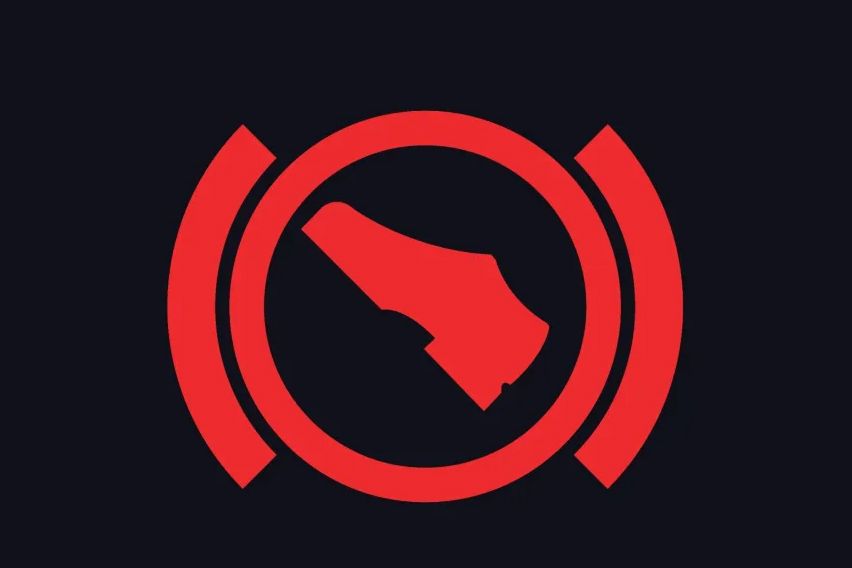
Pattern: This one again is pretty easy to remember with a slightly tilted men’s shoe with a circle.
Cause: If and when the Automatic Shift Lock Warning Light is on, it simply means the brakes need to be engaged either to get the car out of neutral or start ignition.
In the manual car, the driver needs to push the clutch each time a gear shift is needed, however, there is no shift lock release, In automatic cars there is a shift lock used for switching between options.
What to do: When the shift lock is stuck there are a few things a driver should do including -
- Try inserting a key, screwdriver, or a nail file into the slot
- Engage the emergency or parking brake
- Press the brake pedal
- Try shifting gears
- Try to find the shift lock override slot
If none of the above remedies work and you are stuck in the parking (probably because the shift interlock solenoid is malfunctioning) it is high time to seek professional help.
Other warning signs are -
Fuel Indicator Warning Light: A simple warning sign with a gas pump and filter hose in either yellow or amber. It indicates the amount of fuel in the vehicle. This warning sign should never be ignored as the system might get filled with water and start leaking it to the engine. The light will go out once the water is drained out.
Seatbelt Reminder Warning Light: Most cars today come with seat belt sensors which activate each time the belt is fastened or unfastened. In some cases, there is a chime along with the light.
Airbag Warning Light: It means there is a problem with the airbag system like a previously deployed airbag not resting properly, a computer system malfunctioning, and airbag ECU cleanup required.
Other warning lights one should be aware of include Traction Control/TCS Warning Light, Vehicle Security Warning Light, Windshield Washer Fluid Warning Light, Engine Immobilizer Warning Light, Power Steering Control Warning Light, and Electronic Power Control (EPC) Warning Light.
Bottom Line
Start paying attention to your dashboard and the lights pooping. Remember ignorance will only add to problems with your car and your financial expenses.
Also Read: Most basic car care tips one should know and follow
Malaysia Autoshow
Trending & Fresh Updates
- Latest
- Popular
You might also be interested in
- News
Featured Cars
- Latest
- Upcoming
- Popular
Latest Car Videos on Zigwheels







